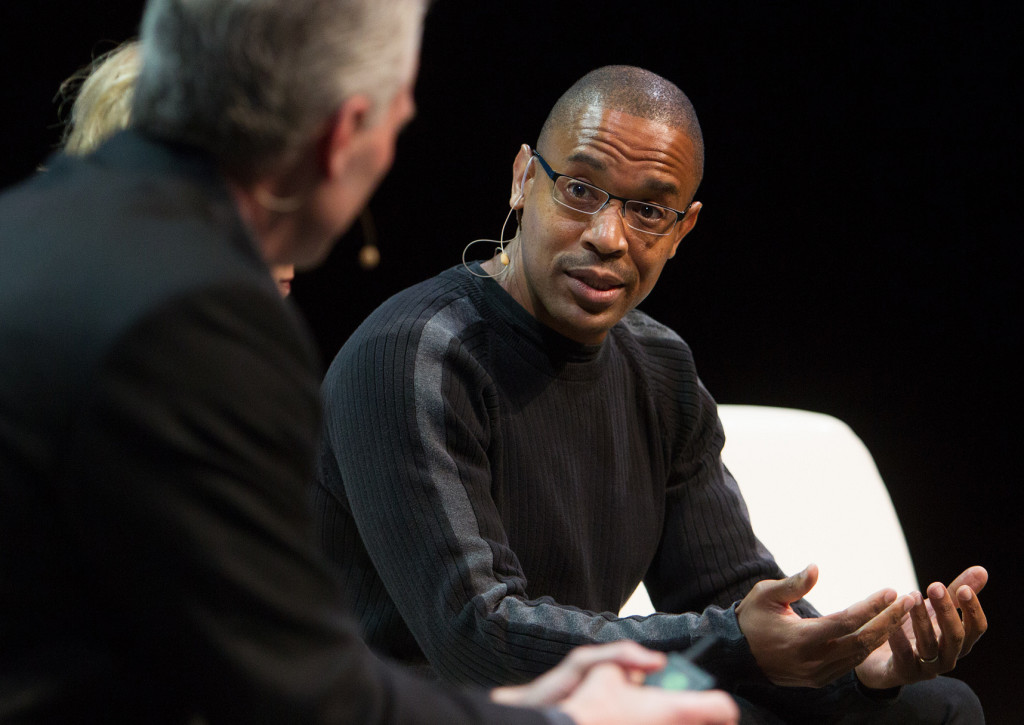Hugh Molotsi | Photo: The Lean Startup Conference/Jakub Mosur and Erin Lubin
The traditional ideas of what it means to fail and to succeed—along with what it means to invent and to innovate—are being turned on their heads. We like how Intuit’s Hugh Molotsi re-frames these terms for entrepreneurs today. This is a story that originally appeared on Intuit Labs, and we’re re-publishing it as part of our partnership with Intuit. – Eds.
The road to innovation is paved with failure. And that’s just fine.
Just ask Hugh Molotsi, who received Intuit’s first Founders Innovation Award in 2011, in part for creating and launching a business that allowed storeowners and others to accept credit card payments and link it to their QuickBooks program. But he’s also racked up his share of failure along the way.
“Failure comes with the territory” says Molotsi, a serial innovator who is also vice president of the Intuit Labs Incubator. “You’re going to have to fall down and scrape your knees a few times. You learn more from your failures than your successes. And if you call it an experiment, you can’t fail.”
For small business owners who may be struggling to pay the rent and meet payroll, innovation may seem too intimidating to attempt. And many are reluctant because they confuse innovation with invention.
While invention is all about creating something totally new, innovation focuses more on improving existing products or processes, Molotsi says. And it doesn’t have to be The Next Big Thing. It can be as simple as finding a faster, more efficient way to do something at work.
“More value is created through innovation than through invention” he says, adding that innovators don’t have to be the first to come up with an idea.
“Look at Facebook and Google. Facebook wasn’t the first social network. Google wasn’t the first search engine. But their people came up with innovative ideas that created longstanding value.”
“Same thing at Intuit. Quicken wasn’t the first personal finance product on the market. QuickBooks wasn’t the first accounting product on the market. TurboTax wasn’t the first tax preparation product on the market. The real value we created was based on innovation.”
So where is the opportunity for small business owners to innovate—and not invent—while still trying to tackle the day-to-day obligations?
“If you observe somebody in their workspace, you’ll find small innovations that improve work and efficiency,” says Molotsi. “It could be on your computer, arranging your desktop to make it easier to find and do work. Or it might be how you set up your phone to have it alert you to do something. If you look around, you’ll find things you do, big and small, to make your life more efficient and better.”
Learning from failure is part of the process, he says, citing a list of innovation seedlings that never quite sprouted. Some, such as a product that would help companies establish and manage franchise businesses, didn’t succeed because customers were reluctant to upload and store their reports online. Another, which provided online business reviews similar to Angie’s List, wilted when the company couldn’t update the technology to keep pace with customer demand.
“We weren’t nimble enough,” Molotsi recalls. “We would go three months between releases. Others were doing it in days.”
Small businesses can follow Intuit’s recipe for innovation, called Design for Delight, to make changes both big and small. The ingredients include knowing your customer, starting broad and then going narrow, and experimenting rapidly and being unafraid to change if things aren’t working.
“Test your idea and make sure it’s the most lean and efficient way to go and make sure it works. Do that before you invest time and money,” Molotsi advises. “Find cheap ways to find new ideas. Constantly do that. If you’re not experimenting, you’ll atrophy.”
Above all, Molotsi says, business owners should remember that seemingly small innovations can produce big results.
“You don’t have to be the person who invents the jet pack” he says. “You could be the person that finds a way to help lawyers become 20 percent more efficient.”
And of course, who wouldn’t want to help a lawyer?
Michael Runzler is senior manager for editorial services and managing editor of the Intuit Network. This is a story that originally appeared on Intuit Labs, and we’re re-publishing it as part of our partnership with Intuit.

